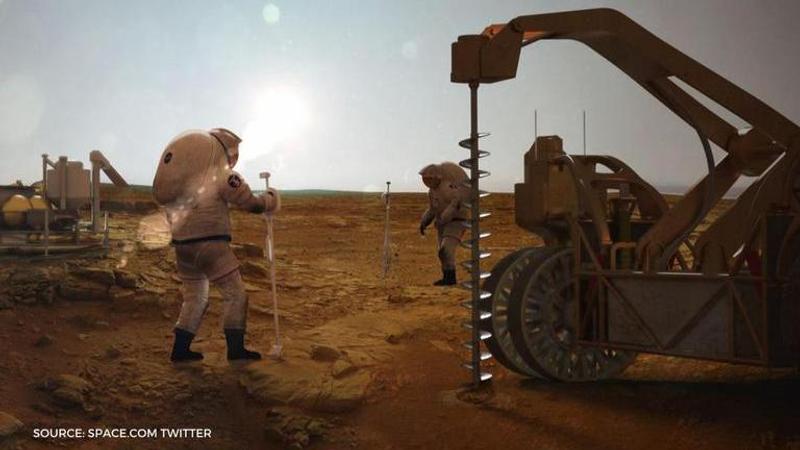Published 19:10 IST, December 10th 2020
Mars colonies of the future may get energy and oxygen from the brine water of Mars
Scientists have found a way to supply oxygen and fuel to the future Mars colony by using water from the red planet. Read till the end to know more about it.

Scientists have found a way to supply fuel and oxygen on Mars if humans are able to establish a new colony on the red planet. A team from the National Academy of Sciences of the United States of America published their research paper on the official website of the said university. According to this new study, the brine water of mars can be used to power the colonies in the future.
More details on the research
Scientists are trying to address the issue of oxygen on Mars for a habitable colony before they start the plan of colony establishment on Mars. Since the atmosphere of Mars is different from the atmosphere of the Earth, the oxygen level is nil. Unlike our Earth, Mars does not has any oxygen or water in the atmosphere. So, if the scientists are planning to design a colony on the red planet, they need to invest in a sustainable source of oxygen for an in-situ environment.
According to this new study, the brine water of mars holds the key. The collected water from mars can be used to create an earth-like atmosphere. Scientists are planning to break down the water, molecules by using electricity to produce hydrogen and oxygen molecule.
Vijay Ramani, the author of the journal who is also a chemical engineer at the Washington University in St. Louis, told Space.com in an interview that since the available resource on mars is really limited, humans must use any available resource if they want to live in Mars colonies in future.
According to space.com, the Phoenix lander from NASA found that the red planet has a large amount of ice. Additionally, this rover from NASA also found that the soil of Mars contains a chemical compound named perchlorates which works like antifreeze chemicals and lowers the freezing of any solution.
The brine water and perchlorates can remain liquid even at a low temperature. According to the published article on PNAS, Ramani and his colleagues tried to explore if electrolysis was enough to use the water. They were able to recreate such saltwater and perchlorates solutions. The team found that electrolysis was able to split the brine water into hydrogen and oxygen.
Ramani said that electrolysis was used for just pure water in the past. Ramani and his teammates used lead ruthenate pyrochlore electrocatalysts to electrolyte the perchlorate brines. It helped then to produce pure oxygen and hydrogen from the brine at a low temperature.
Updated 19:10 IST, December 10th 2020



